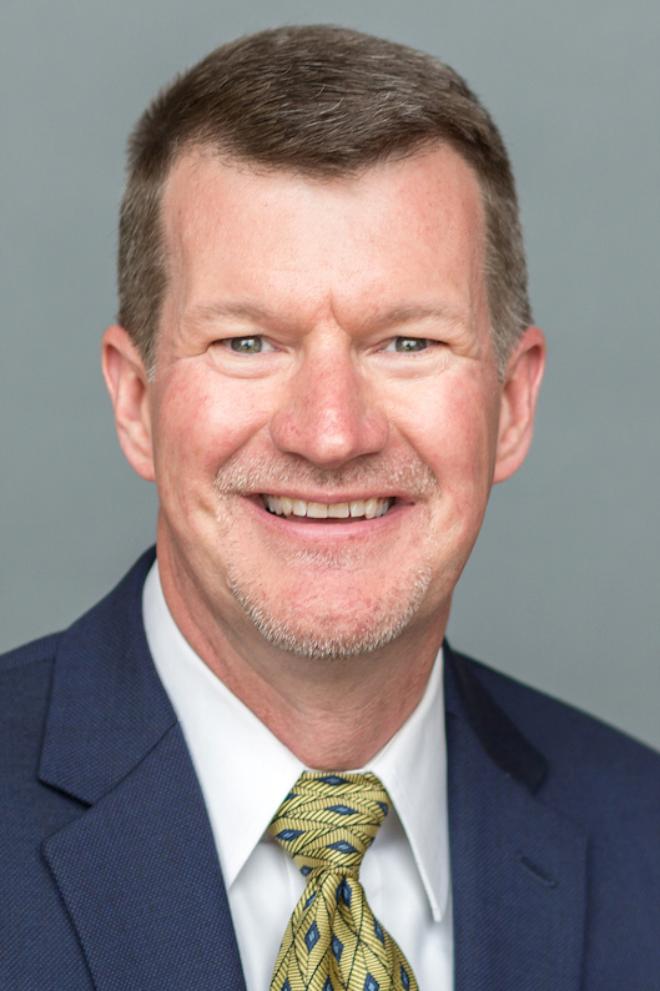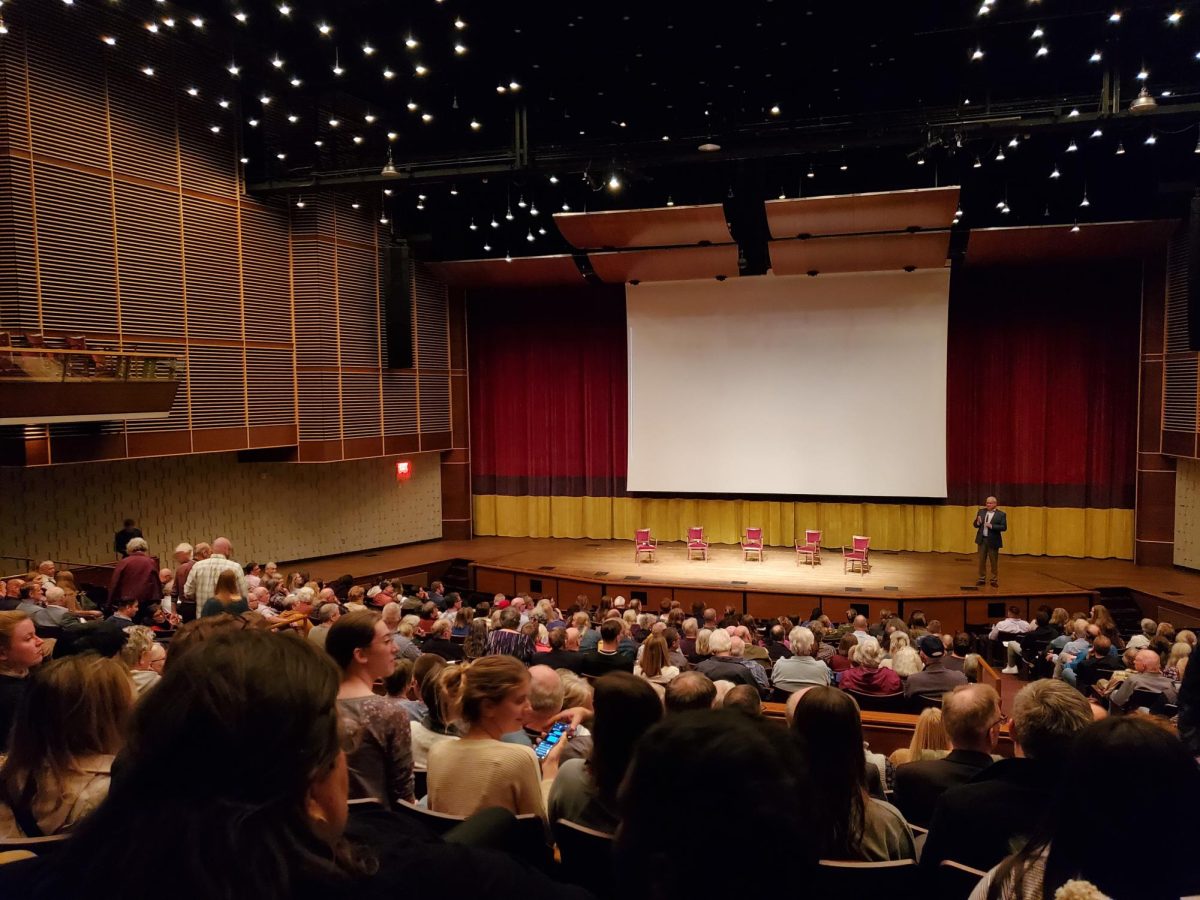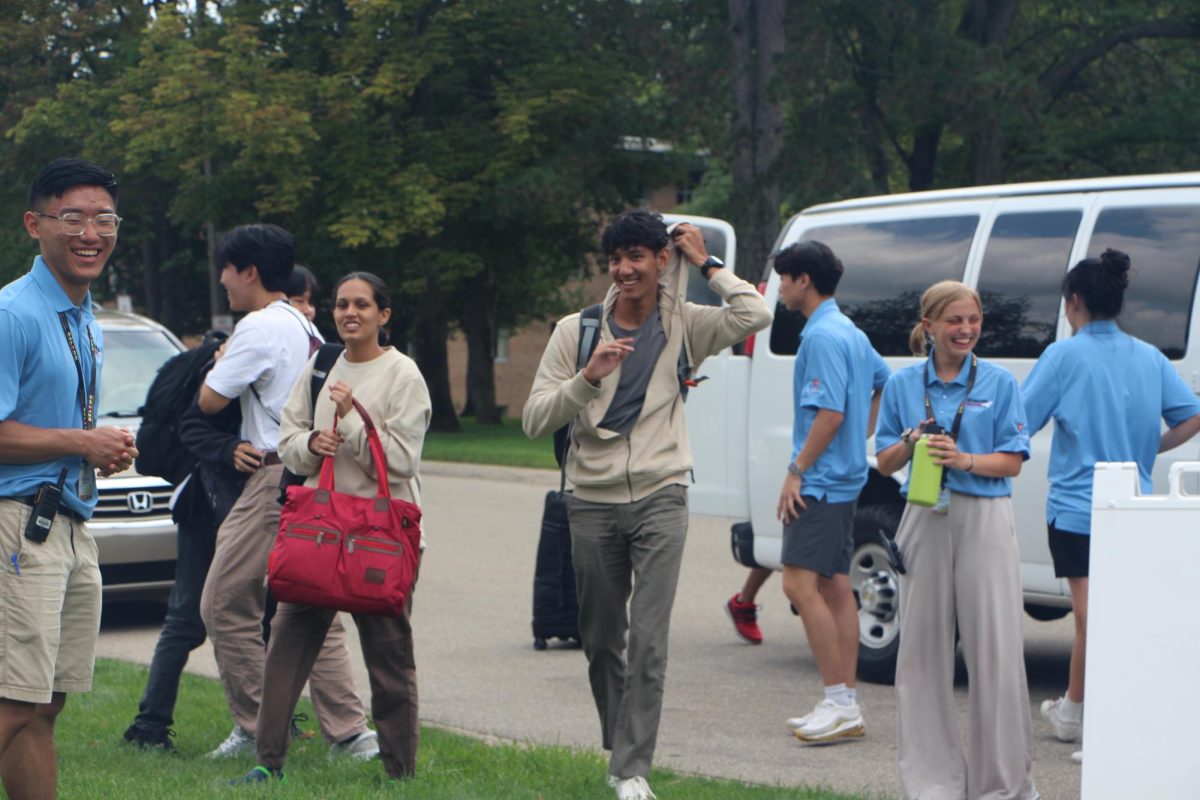Congressman Bill Huizenga represents Michigan’s 2nd District, and he is a key part of President Donald Trump’s and the Republican leadership’s plan to dismantle the regulatory infrastructure President Barack Obama and his administration put in place after the Great Recession. Huizenga, who was re-elected to his fourth term 63-33 percent in November, is chairman of the Financial Services subcommittee on capital markets, securities and investments, which reigns supreme over financial institutions including the Securities and Exchange Commission, Wall Street’s top cop.
Already this term, Huizenga has authored legislation that will roll back part of Dodd-Frank, the regulatory package Obama put in place to reign in Wall Street speculation after it contributed to the 2007 economic collapse. Specifically, the bill repealed a rule that forced oil companies to divulge payments made to foreign governments in pursuit of international relationships.
Furthermore, Huizenga is on track to becoming a powerful player in the Republican Party thanks to his efforts in delivering Michigan to Trump during the campaign as well as his strong friendship with Vice President Mike Pence, which goes back to their shared time in Congress.
Though Huizenga maintains stylistic concerns about the president, the policy benefits he hopes to achieve under a Trump administration overpowered his significant initial misgivings.
Time to Build Trump Town
With an enormous American flag hanging from the rafters in front of a backdrop of black curtains, flanked on his left and right by the Michigan state flag and another, smaller American flag respectively, Huizenga stepped to the podium in the Deltaplex in Walker, Michigan, facing a crowd speckled with red hats.
“Who’s ready to hear from Donald Trump?” the congressman asked, gesturing wide with his arms, beckoning the crowd to answer. “Yeah! Well me too,” he continued.
“And I can tell you he’s here in West Michigan, and in Michigan, on this thank you tour because he knows that the road to the White House went right through the Midwest, right through Michigan, and right through this area here in West Michigan, and we all ought to be proud of the work that was put into that!”
Huizenga was one of two Calvin alumni (the other being Betsy DeVos), and the only elected official besides Trump to speak from behind the podium that featured a blue plaque with red trim that read “USA,” with “THANK YOU TOUR 2016,” underneath it. The writing was in all capital letters of course.
That was Dec. 9, a month and a day after Trump won a surprise electoral college victory to become the 45th president of the United States. A few months earlier, Huizenga was stumping all over West Michigan for Florida senator Marco Rubio, once considered the Republican front-runner.
Leaving Little Marco-ville
In the 2nd District, which wasn’t enamored by candidate Trump’s confrontational rhetoric, Texas senator Ted Cruz won 37.9 percent of the vote in the Republican primary. Rubio finished a disappointing fourth with 10.9 percent of the vote, behind Trump and Ohio governor John Kasich, who received 24 percent and 21.9 percent respectively.
Even if 2nd District and Michigan voters didn’t see it (Rubio only received 9.3 percent of the statewide vote which equaled a fourth-place finish), Huizenga believed he had found the apostle the Republican Party needed to convert the masses back to conservatism:
“He’s very smart, he’s got a philosophy and an understanding of that philosophy, and then I think he also has a great way of articulating that philosophy.”
Even if he anointed the wrong man, Huizenga identified the winning strategy. One criticism of Hillary Clinton’s campaign was the lack of a guiding philosophy, especially on economic matters, as to why she was better qualified to be president; additionally, Clinton lacked an effective method of communicating her message to voters.
Senator Rubio also represented what was thought to be the panacea to the Republican Party’s failed coup in 2012, when Obama’s first term ended. The Republican National Committee’s post-election autopsy identified the Romney-Ryan campaign’s cause of death as a lack of diversity.
The emerging Obama coalition of college-educated whites, Hispanics, blacks and religious minorities seemed to be the key to the electoral college, and the Democratic leadership decided they needed to widen their tent if they wanted to move back to 1600 Pennsylvania Avenue.
Huizenga believed Marco Rubio was ready to stand at one corner of the tent, uproot the stake, and take a few giant steps backwards: “There’s no doubt that with the rise of Hispanic community he has a great face and voice for the future of the Republican party, and not just in Michigan.”
Senator Rubio dropped out of the Republican primary race after coming in second to Donald Trump in his home state of Florida with 27 percent to the future president’s 45.7 percent, and Huizenga was left adrift in a sea of unnerving options.
Who’s Got the Sandpaper?
The congressman often says he’s “a Christian, a conservative and a Republican, in that order.” That philosophy doesn’t lead to a natural marriage with Trump’s political brand.
Huizenga didn’t run to Trump with open arms after Senator Rubio dropped out because he was uncertain of Trump’s devotion to the democratic institutions that have kept America afloat for nearly two hundred and fifty years, and said as much at an event in Detroit, early in the summer of 2016: “I’m not interested in having a President who is going to ignore the constitutional structure that we have.”
With these reservations, Huizenga decided to wait until after the party named its nominee to endorse again.
After the convention, Huizenga showed up at the Republican Party’s front door where Mike Pence shook his hand and showed him the list of potential Supreme Court nominees that was nailed to the doorframe.
In September of 2016, candidate Trump released a list of 21 judges he would consider appointing to the Supreme Court to fill Antonin Scalia’s, or any other, open seat. USA Today reported that the list was overwhelmingly white, male, and “straight out of conservative central casting.” Furthermore, most the names hailed from the middle of the country, in traditionally red or battleground states.
“That was something that tipped them into the Trump camp in November. They looked at it and said we might not agree on trade, Ukraine, whatever it might be, but the Supreme Court is so vital to what’s going on. That’s the kind of feedback I got from West Michigan,” Huizenga said.
“Seeing who he was looking at, including Larsen from Michigan, was helpful to get a glimpse into possibly his philosophy, and possibly whose advice is he looking to.”
Pence, a long-time friend of the congressman, also persuaded Huizenga to back Trump.
“I count Mike as one of the guys who was sort of the elder statesman when I got [to the House], a guy who could talk through and lay out the three-dimensional chess as he saw it.”
The vice presidential nominee was the sandpaper that softened Trump’s confrontational, sometimes-too-harsh-for-the-Midwest’s-Christian-edges.
While President Trump held only one rally in West Michigan before November, a Halloween event at the Walker Deltaplex, Pence held three rallies across the region in the final four days of the campaign, and he even joined Trump in a 12:30 a.m. stop in Grand Rapids on election day.
Mike Pence’s efforts to schmooze the western part of the state and present his conservative bona-fides as a substitution for President Trump’s lack of policy specifics were vital to flipping Michigan red for the first time in seven cycles.
Huizenga fared far better across the district than did his Presidential counterpart — 7.5 percent better to be exact — but that was expected. Trump wasn’t and still isn’t a West Michigan conservative, and even with Pence’s prodding and cajoling, voters were still put off by his style.
“West Michigan is not hard-nosed conservative in that it’s not my way and the wrong way. It’s much more collaborative, and that was not Trump’s outward style. To get West Michigan kind of comfortable, Mike Pence came in and said: ‘It’s time to come home.’ That was the phrase he was using. ‘It’s time to come home.’”
Huizenga and his constituents made the same choice millions of Americans made when faced with two candidates saddled by historic disapproval numbers.
“Ultimately it became a binary choice. It was going to be either Hillary Clinton or Donald Trump. As I waited out, neither of those candidates ideally matched my philosophy or my approach, but one was a heck of a lot closer than the other.”
Trump Town Looks Good So Far
While Congressman Justin Amash, Huizenga’s representative neighbor, has pulled no punches when it comes to publicly disagreeing with and calling out the President, Huizenga’s views align more directly with those of the President.
Trump’s first month and a half in office has been marred by stories of dysfunction, palace intrigue, and pure incompetence, the epitome of which was the bungled roll-out and ensuing court room drama of his executive order on immigration.
Massive public outcry against the alleged “Muslim Ban” — all seven countries listed are Muslim-majority nations — fueled protests and marches across the nation that were largely dismissed by Republicans in Congress.
Huizenga insisted that the chorus of outrage was drowning out the distant din caused by the real problem — conflict in Syria — “the issue that is creating the refugees.” Furthermore, Huizenga agrees with the President’s assessment that due to conditions on the ground in those seven countries, the United States is not able to ensure the non-violent intentions of those seeking to come to America.
“DAESH was gaining cities in Syria and Northern Iraq that were banking centers and governmental centers,” Huizenga said. “They were gaining passport machines, and the ability to make legitimate driver’s licenses and banking records.”
A 2015 Department of Homeland Security investigation detailed the Islamic State’s ability to print fake Syrian passports, a tool they gained after they took control of Raqqa, which has since been named the capital of the caliphate.
Another DHS report released two weeks ago stated that citizenship was unlikely to be a reliable indicator of “potential terrorist activity.” Additionally, a compilation of statistics showed that “the foreign-born, primarily US-based individuals who were inspired by a foreign terrorist organization to participate in terrorism-related activity, were citizens of 26 different countries, with no one country representing more than 13.5 percent of the foreign-born total.”
Huizenga also rejects the assertion that the executive order places the government’s finger firmly on the scale in favor of Christians because, “actually, there are very few Christians in Syria, there are some, but it’s more of the Yazidis and the various Kurds.”
The Yazidis are an ethnically Kurdish religious minority, heavily concentrated in Northern Iraq, that have been labeled infidels by Al-Qaeda, and have been targeted for extinction by the Islamic State for following a syncretic belief system that borrows practices from Christianity, Islam and Zoroastrianism. They are often caricatured as devil-worshippers because of the importance they place on Melek Tawwus, an angel that fell from heaven but was later restored to his rightful place by God.
Regardless of the moral implications of such an immigration policy, people such as Lt. General H.R. McMaster, the President’s newly appointed National Security Advisor, have taken issue with the policy implications of perpetuating a culture war with Islam and the Islamic State, if only implicitly.
The Islamic State reacted with joy to what they are calling the “blessed ban,” because it plays into their narrative that the United States, and the West in general, hates Islam and Muslims. If Muslims feel that the West hates their culture, what incentive would they have to reject violent, extremist ideologies and groups?
Additionally, from the United States point of view, if the path to asylum and refuge is removed, wouldn’t that also remove the incentive for Muslims to reject violent, extremist ideologies and groups? An act they can be killed for?
Huizenga pointed to the transient nature of the order in refutation: “I think again that’s why if we were saying this is a ban, or a permanent freeze versus a temporary freeze, then that might have more legitimacy.”
It Just Needs a New Coat of Paint
The biggest gripe Huizenga has with Trump so far is his tendency to send out harsh messages from his Twitter accounts: “There are a lot of times I wish somebody would slap the phone out of his hand as he’s tweeting some things that are not necessary.”
Huizenga also raises an objection to Trump’s troubled relationship with the judicial branch, the most memorable of which was the days-long tirade directed at Judge Curiel of the Trump University lawsuit.
In response to what he saw as unfair rulings, then candidate Trump devoted part of his rally speech at a San Diego convention center to calling the Judge a “hater” and insinuating that because the Judge was of Mexican heritage, he couldn’t impartially preside over the lawsuit.
These remarks were strongly rebuked on both sides of the aisle, as well as by Huizenga, who described them as “the most disturbing to me” of Trump’s attacks on the judiciary.
But the congressman sympathizes with the President’s view that the ninth circuit court’s decision to halt implementation of the immigration executive order was politically motivated: “In my mind that’s a separate issue from Judge Curiel. The questioning of judicial philosophy and activism that has occurred, that’s not new. The ninth circuit is the most overturned of all the circuits, and there’s philosophies that drive certain areas as well.”
While Trump’s lack of political experience has thus far hampered his ability to govern effectively (his realclearpolitics.com approval rating is 44.7 percent as of March 8), his campaign message of disrupting the status quo in Washington still rings true for Huizenga:
“I think the interesting thing is people outside the bubble go, ‘why in the world don’t you guys just say this? If that’s what you think, why do wrap it up in such niceties all the time?’ You know why is it, ‘my good friend across the aisle,’ as you’re throwing darts at each other?”
Additionally, the President’s habit of needling the press doesn’t bother Huizenga in the least: “That’s why the media is so thrown off by him, he’s not adhering to the niceties of what they traditionally have sort of dealt with.”
Huizenga described the friction between Trump and the press in the same way one would describe taunting an opposing player into committing an unsportsmanlike conduct penalty during a high school football game: “It’s driving them nuts, and I think he knows that, and I think that’s probably exactly why he did that. They are rising to the bait all the time.”
Intermittent objections to the Trump’s style notwithstanding, it seems Huizenga’s stock will keep rising in the eyes of a president who values loyalty above all else.








